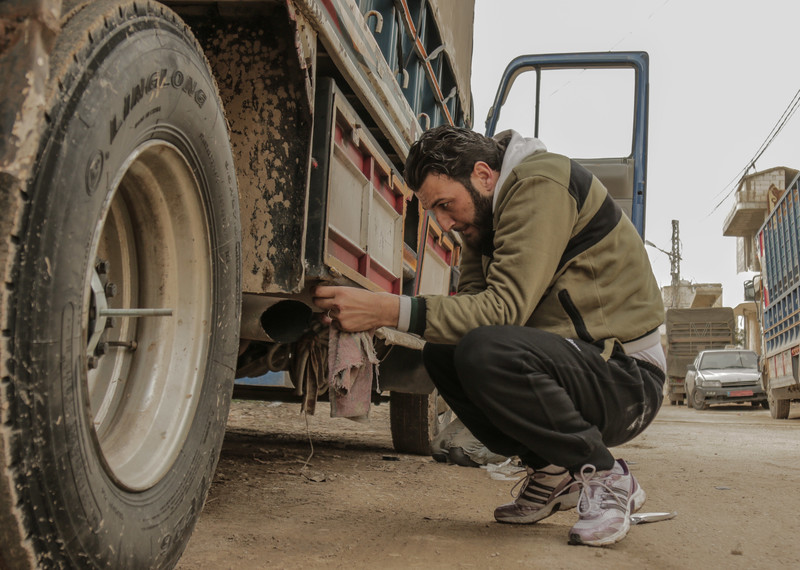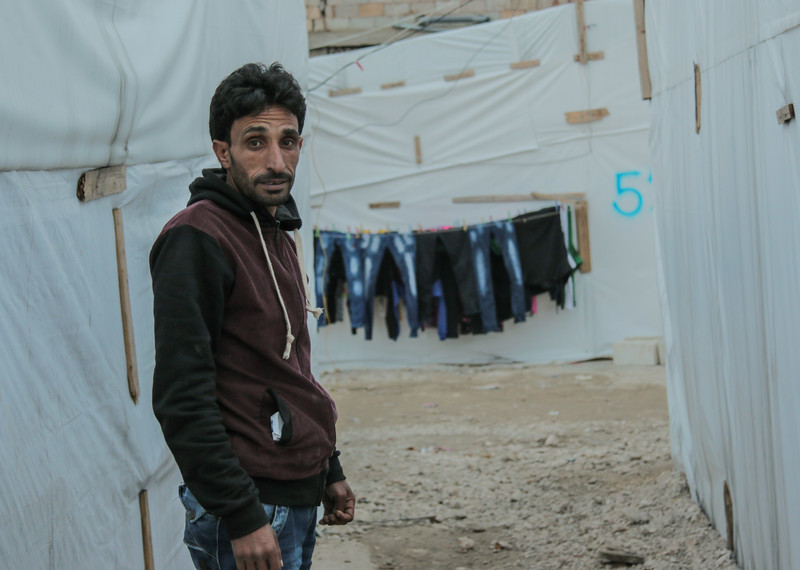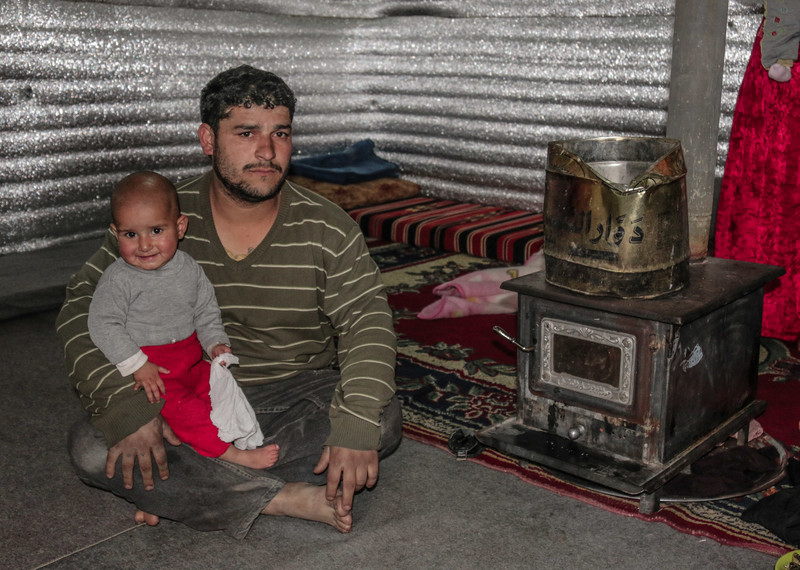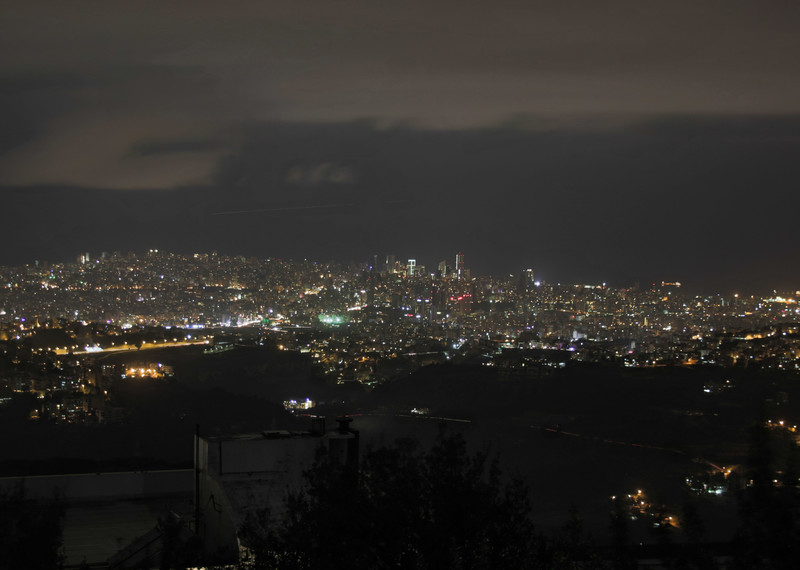Ali fled across the border to Lebanon in 2013 after being detained twice in Syria because of his peaceful activism. As the crisis spiralled and many thousands more were forced to become refugees, Ali and his friends made a Facebook appeal for clothes and blankets. Their idea grew into a humanitarian organization called Syrian Eyes. Today, it supports 740 families through eight aid projects in Lebanon’s eastern Bekaa valley, providing jobs, food, medical help, education and much more. Ali, who volunteers regularly, gives us a glimpse of what a normal day there is like.

“I fled to Syria during the civil war in Lebanon,” says Abo Tareq, a 68-year-old Lebanese taxi driver. “I totally understand how harsh war can be and what it means to be without a home.” I met Abo Tareq once on a trip around Beirut [Lebanon’s capital]. I didn’t really have enough money but he offered me a very cheap price and since then we’ve been good friends. He comes on most of my trips, including to the Syrian settlements in the Bekaa valley [two hours’ drive north-east of Beirut].

We pass a sign for the Syrian border on the Damascus main road. It’s weird that we are only 30 minutes away, but that we can’t go there. I visit Bekaa about once a week. Sometimes I stay a while to help prepare firewood in winter, for example. I used to stay at the community centre we built, but it burned down 10 months ago. We haven’t been able to rebuild it yet because of registration problems. It’s stressful.

At the entrance to Jarrahieh camp we stop to buy food baskets at a supermarket owned by Abo Rabiaa (centre). Syrian Eyes provides food distributions here every four to six months, more often in winter. Abo Rabiaa employs eight Syrians in his two shops, and uses his good local contacts to support our work: getting refugees free medical treatment at the hospital, for example, or helping people to be released if they’ve been detained by the Lebanese authorities for not having residency papers. “We are in the service of poor people,” he says.

Younes, a 37-year-old Lebanese truck driver, lives next to Jarrahieh camp. He uses his truck to help Syrian Eyes distribute food, clothes, etc. “I always put myself and my family in their situation,” he says. “I can imagine what someone else’s help would mean to me.”
I head into the camp to visit friends and see what they need. We keep an overview of around 2,500 refugees, taking people to hospital, providing water tanks, and run a cultural project called Syria in my mind. It’s important to teach the kids about the history of their homeland, so it’s not just about people fighting and bombs – especially for the ones who were born in Lebanon.

Abo-Mohamad, 27, was one of the first people in the camp to volunteer for Syrian Eyes. He now works in the bakery we built last year. Abo-Mohamad lost his parents three years ago in a shelling that destroyed their house: “I fled from Syria with my two sisters and two brothers,” he says. “They depend on me to provide food and other basics. It is a very difficult task for a Syrian refugee living in a camp with no residency papers or any other rights.”

“The news tells me I can expect to go back to Syria in January 2017,” jokes Eyad, 28, who fled to Lebanon in 2014. People here love his unique sense of humour. But his personal story is tough. “My house in Syria was totally destroyed in an airstrike and my wife’s leg was injured. We can’t cover her surgery expenses and her situation is getting worse. We use UN food vouchers [USD$13.50 per person a month] to buy food and milk for our three kids but it’s not enough. We have to pay the landlord US$40 monthly – I owe him US$460 already and have no idea how I will pay it back. I collect old shoes in the street – anything that fits into this stove – to keep my family warm.”

We visit the bakery built by Syrian Eyes and a German organization, Jasmin-Hilfe. It provides four much-needed jobs for people in Jarrahieh, and warm delicious bread for around 100 families a day. Together, we have also funded a field clinic run by two local doctors, giving around 600 people free medical services every month. Health problems such as pneumonia are common, especially among the kids. You can smell toxic fumes everywhere – people burn anything they can find, like shoes and plastic, because firewood and diesel are so expensive.

Some people in the camp breed pigeons as a small source of income. Very few Syrian men can find work in Lebanon, so mostly it is women and children who work. The kids sell Kleenex tissues or chewing gum on the street instead of going to school. It is not safe for them out there. Sometimes we just go to have fun with the kids – play music, sing, take them to the playground and buy sweets. We are always there for ceremonies like Mother’s Day and Eid.

We say goodbye and head back to Beirut. It’s not a good idea to take this trip with Abo Tareq at night. Because of his age, he doesn’t see very well in the dark, so I do most of the driving with him, warning him of road junctions and barriers. We are greeted by this beautiful sight of Beirut at night. “I admire what you guys are doing,” says Abo Tareq. “I hope this war ends very soon.”
Lebanon now hosts more than 1 million refugees from Syria – making every fifth person in the country a refugee. Amnesty is urging governments worldwide to share this huge responsibility, and help those who need it most through global solutions like resettlement.


